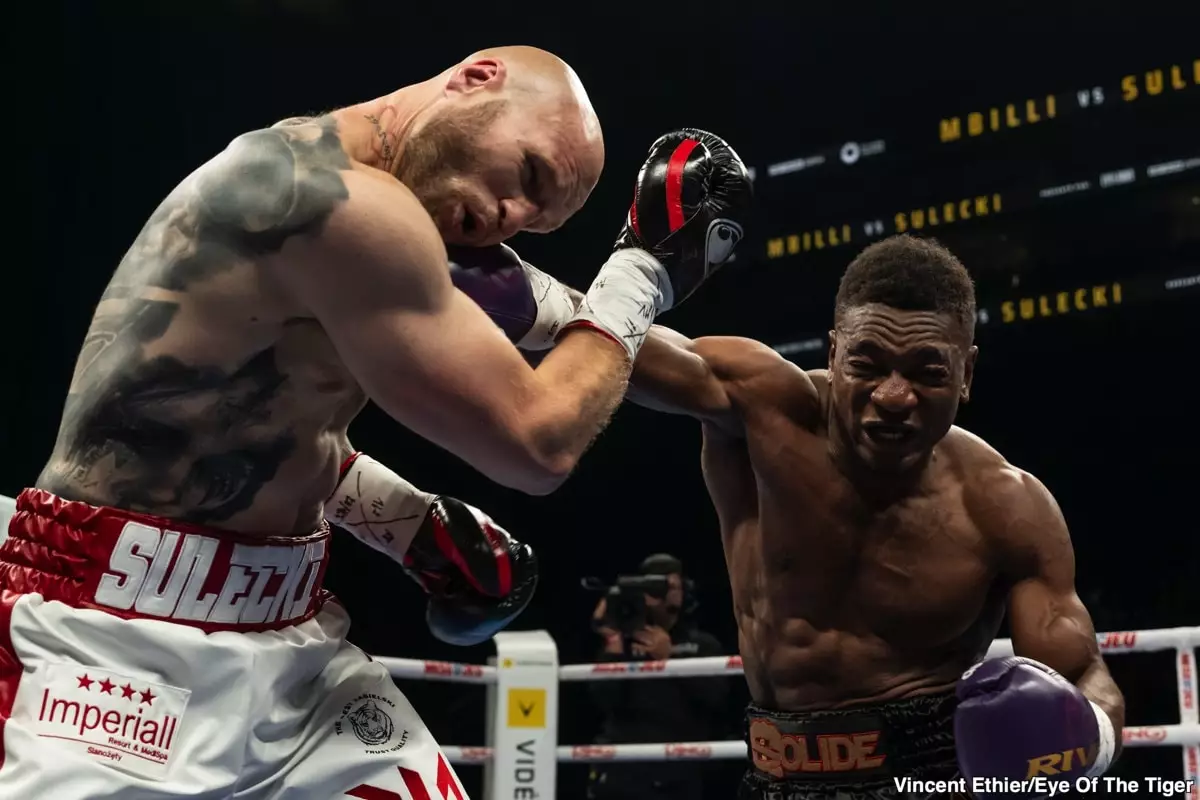In a night marked by rapid knockouts and emphatic finishes, Christian Mbilli emphatically stamped his authority on the super middleweight scene. Facing Maciej Sulecki, a seasoned veteran with mixed recent results, Mbilli wasted no time dismantling his opponent. The fight concluded inside the opening round, with Mbilli’s aggression and precision leaving no doubt about his rising potential. His relentless pursuit, combined with a masterful blend of power shots, culminated in a technical knockout at just 2:28, underscoring a performance that felt less like a battle and more like a statement.
What’s particularly striking about this victory isn’t just the swiftness or the knockout count adding to Mbilli’s undefeated record, but rather how decisively he managed to neutralize Sulecki’s defenses. Sulecki, despite his experience, exhibited vulnerability that Mbilli exploited without mercy, showcasing a clear disparity in readiness and athletic prime. This knockout wasn’t merely a lucky punch; it was an exhibition of Mbilli’s evolved ring IQ and devastating punching power.
Choosing the Right Opponents: A Double-Edged Sword
While the triumph itself was impressive, the decision to match Mbilli against Sulecki sparked some debate within the boxing community. Sulecki’s recent performance history, including a stoppage defeat in his previous outing, suggested he was not the ideal candidate to test Mbilli’s championship credentials. The mismatch raises questions about the sanctioning bodies’ responsibilities in safeguarding the meritocracy of title fights.
In theory, an interim title should signify a stepping stone toward challenging elite opposition, ideally involving contenders firmly entrenched in the rankings. Unfortunately, Sulecki’s ring outing fell short of delivering a genuine litmus test for Mbilli, which somewhat taints the legitimacy of the title acquisition. The WBC’s lax matchmaking overlooked the chance to push Mbilli by pitting him against a top-ranked, in-form challenger—potentially stunting his growth and delaying a true assessment of his championship worthiness.
Implications for Mbilli and the Super Middleweight Landscape
Despite the controversy, Mbilli’s new status as the WBC interim champ positions him strategically close to a blockbuster career moment. The prospect of featuring on a major undercard, particularly the upcoming Canelo Alvarez vs. Terence Crawford clash, not only elevates Mbilli’s profile but also offers a platform to demonstrate his skills to a wider audience.
The interim belt is often criticized as a stepping stone or even a political tool. Nonetheless, for Mbilli, it could serve as the springboard for a legitimate world title opportunity—possibly against Canelo himself or other top-tier super middleweights waiting in the wings. The speed and power Mbilli displayed suggest he’s a genuine contender, one with the hunger and ability to challenge the status quo.
Night of Knockouts Reinforces the Power Era
The evening was far from a one-man show, as other bouts echoed the dominant theme of knockouts. Steven Butler and Arslanbek Makhmudov both secured early stoppages, reinforcing the broader narrative of boxing’s current power surge. Their clinical finishes, alongside Mbilli’s explosive debut as interim titleholder, signal a rejuvenation within their respective divisions—where fan excitement is fueled by swift, decisive victories.
In essence, the night highlighted how power and precision continue to captivate boxing audiences. Fighters like Mbilli are not only progressing through the ranks with unbeaten records but are doing so by delivering electrifying performances that reignite enthusiasm and reshape expectations within the sport.


Leave a Reply